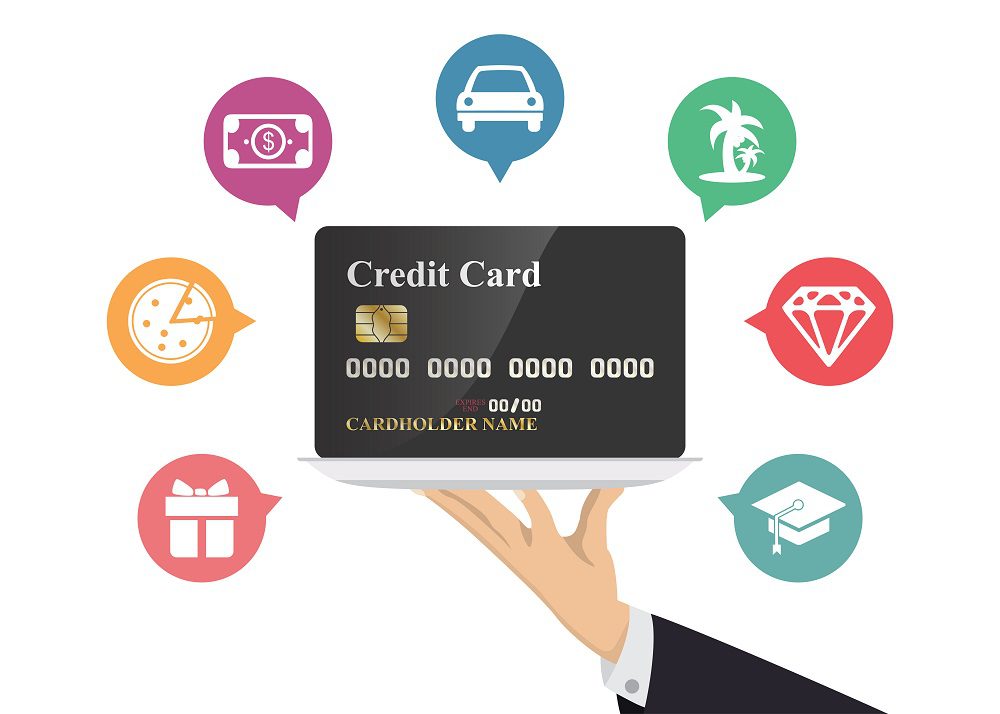Have you ever wondered if there was a sure-fire way to tell if the credit card you’re choosing is the right fit for you?
When you have to apply for a credit card (or better yet, you’re thinking of getting another one for a different purpose), there’s always that looming confusion about which one is the best one out there. The simple truth is that there is no God-sent card that will check all the boxes for you and deal with everything. After all, then there would be no need for different types!
However, the questions remain, and a lot of people have taken this choice, and both made it an extremely complicated science and something akin to an art form. And truly, it should never be as complicated as some people make it seem. It may be challenging to find the best credit card for your needs, but it doesn’t need to be stressful as long as you know your options and priorities.
Simply put, you have to answer the right questions! Thus, in order to make sure that your credit card journey is as facile as possible, we’ve gathered the best 4 tips to help you make your choice. As long as you understand what your option entails, the choice is already half made!
Let us know if you’re in the market for a new card and if you have any other tips yourself down below!

#1 Keep an eye on your credit score for credit card offers
The best way to make sure you’re going to get one of the best deals out there is to check your credit score. This comes as a pre-requisite, so you don’t face any surprises later on, and then based on that, you can continue your research into credit card offers. After all, like with all credit cards, the better your credit score, the better the offer for the card will be.
Moreover, this is a great way to see if you have any problems with your score to begin with. After all, if you want to borrow some money, all official entities will check this score, in particular, to be sure you are a good borrower.
If the number you’re seeing isn’t what you expected or lower than you hoped, you can start working towards improving your credit score, which can involve anything from altering your spending habits to challenging an error you found in the report.
The good news is that federal law gives you the right to ask for a copy of your credit report once every 12 months from each of the three major bureaus (TransUnion, Equifax, and Experian). And this comes in handy more often than you may think (along with always making sure you know your way around taxes)!
#2 Ask yourself what type of credit card is a good fit for your needs
Now that you have your credit score and you can browse offers, it’s time to ask yourself what your needs are and what your goals are. Generally speaking, there are three types of credit cards that are focused on different outcomes depending on your needs, which you should definitely take into consideration.
After all, when you think about applying for a credit card, you have an end goal in mind. Be it that you are trying to get more benefits when shopping or you are trying to improve your credit score, there are many reasons that can be found in the three types of cards we detailed here. All you have to do is ask yourself the right question.
#2A Are you focused on rewards?
This type of reward credit card is the one for you if you want to be able to buy something extra this month only to be able to pay your whole balance in full for the next one. That way, you will not get any added interest on the sum you spent, and you will get to cover whatever money you borrowed that month in advance.
While this card comes with a higher Annual Percentage Rate (APR), it shines when it comes to rewarding you for choosing and using the card itself, which other cards don’t come with. Generally, they come with a mile scheme for airlines, or points or cashback, which you get with every dollar you spend.
So if your end goal is to have a card that can help you when you’re low on cash but also give back to you in the form of rewards for every big purchase, this is definitely the one for you!
#2B Do you want to save money on interest?
This type of card may be the best match for you if you happen to have an irregular income or you plan to have some balance on it from time to time. These cards are the ones that come with a starting APR of 0% and continue with low interest when compared to other types of cards.
It’s the best choice when you think you may have to pay for something on short notice and you don’t have enough savings or if it’s an emergency and you’re stripped of funds. They’re also amazing if you happen to have to pay off high-interest debt, as some of these credit cards offer the option of balance transfer offers interest-free!
What could pose a risk for this type of card is the fact that they are hard to come by, even for people with average credit scores, so you can imagine it would be difficult to get one if your credit is poor.
#2C Are you trying to raise your credit score?
If people are just starting to build credit, student credit cards are meant for that purpose in particular, as they are unsecured cards meant for this reason specifically. On the other end of the spectrum are secured credit cards, which are meant to help you rebuild your credit. They generally require a deposit of at least $200, so they have a security blanket in case the situation doesn’t pan out as envisioned.
This also means you know about the deposit, and you will be more mindful about how you use the card. Furthermore, it signifies that when you upgrade your account or you decide to close your account in good standing, you’ll be getting that deposit back.
These types of cards are the easiest ones to qualify for and may be the best choice if you’re trying to improve your credit.

#3 Now that you have your needs, make sure the card fits your criteria
You know what you can expect from each type of card and which one will be the best fit. Yet, just because you know which one may be the one that fits like a glove, in theory, the offers you may have may not be just as great. You will have to take into consideration what your monthly spending is and your credit score in order to filter through your options.
And while you’re browsing through your top choices, make sure you have these details in mind for each of the three types of credit cards we have discussed so far:
#3A For cashback, rewards, or travel cards
Reward credit cards are great if you’re thinking about getting something back from all the spending you’re planning to do. After all, if you’re covering your balance, why not get some extra benefits at the same time? This is exactly why you should look at which category you are most likely to spend the most money on, so you can choose a card that offers the biggest rewards for that specific category.
If your main goal for this card is to use it when you travel abroad, you should look for offers that do not include fees for foreign transactions and that offer credit cards with chip-and-PIN. Most countries would not use the chip-and-sign that is customary here in the U.S., and it’s better to be safe than sorry.
This type of card can end up being a bit complicated for some, so the next thing you have to look at is whether a credit card with a flat rate reward or cash back would be better suited for you. After all, if the idea of keeping track of spending caps, loyalty tiers, rotating rewards, or limited-aware seat availability sounds like a headache, those without a flat rate option wouldn’t be a good fit for you.
#3B For low interest, balance transfer or 0% APR cards
The best options generally land on the 0% APR cards and the low-interest ones. However, depending on how fast you plan to cover your debt, the choice looks very different. You may be looking at a card with a long interest fee period. But if you know you may have to carry the balance around for a few years, opt for a low ongoing APR: you won’t have that initial 0%, but you will have a longer period to settle your debt.
If you’re looking to make a balance transfer, you have to pay close attention to the transfer fees associated with the account. What’s more, there could be a limit on how much you are allowed to transfer over, which can become complicated in the long run, especially with the fact that the APR differs between transfer cards and purchased ones.
#3C For student or secured credit cards
For unsecured (student) or secured credit cards, you must first determine which of the three major credit bureaus the card’s payments are reported to. A lot of the secured credit cards don’t report to any of the three, so if you’re looking to rebuild credit, it may be best to keep this in mind.
Moreover, there may be additional costs associated with opening and managing the account. Generally, these types of cards have an annual fee you will have to pay in order to keep the account open. So if you’re not looking to improve your rather bad credit score, you should not take them into consideration. You should also keep in mind that the deposit you have on your card is sometimes proportionate to the credit limit of the card, so while it’s good to have a low deposit, it may not help you in the long run if you need a higher limit.
Another thing to look into when you’re considering secured credit cards is whether you can upgrade the card to one with more competitive terms once you’re ready to make such a move. The longer you have the account open and in good standing, the better, so you should see which option lets you keep the account open for longer.

#4 Apply for the card that gives you the biggest combined value for your needs!
You may have found the perfect option after you took into consideration all the points we brought up earlier. However, if you’re looking for tiebreakers, you have to look at what sets apart each of the offers you have.
You should look for reward cards, regardless of type, that have no expiration date for when you have to cash in the rewards; that way, you can always access them.
Some secured cards increase your limit if your account is in good standing, which may put one offer above another one.
While for 0% APR or low-interest cards, some may have the benefit of no added late fees or increased APR as a penalty for late payments, which can be a great feature that can make your choice easier.
There are a lot of other things to consider, so make sure you read all your offers carefully and that you aren’t going to rush into any decisions. What’s more, remember that when you apply, you can include all reasonable income you have access to, not just your fixed one; this can mean even adding your spouse or partner’s income or any money made from renting property to others.
What’s next?
Now that you have all the knowledge you need in order to make the best choice for yourself (or help a loved one or friend), all you need to do is apply for that card. Generally, if you’ve done your calculations well, there’s no chance that you are going to be denied one and all you will have to do is wait for it to arrive at your place.
However, your work doesn’t stop here! You will have to use your credit card responsibly, and in accordance with whatever financial goals you set for yourself. Be it that you’re gathering all sorts of rewards and travel miles, building up a good credit score, or you just want to establish credit, you have to be careful and pay your bill in full each month. Stick to your plan, and don’t go astray from it just because it seems doable.
The credit card is there to help you reach your goals in an efficient and affordable way. So you make it work in your favor as long as you stick to the plan and the rules. Never settle for anything else!
And if you’re looking for help because you think you cannot pay your taxes in full, do not despair! We’ve got the top expert advice right here, so you don’t have to go scavenging the internet for it!














2 Responses
My credit is decent – so Give me a credit card with more than $1000.00 in credit and LOW Interest!
I need a credit card with low interest!